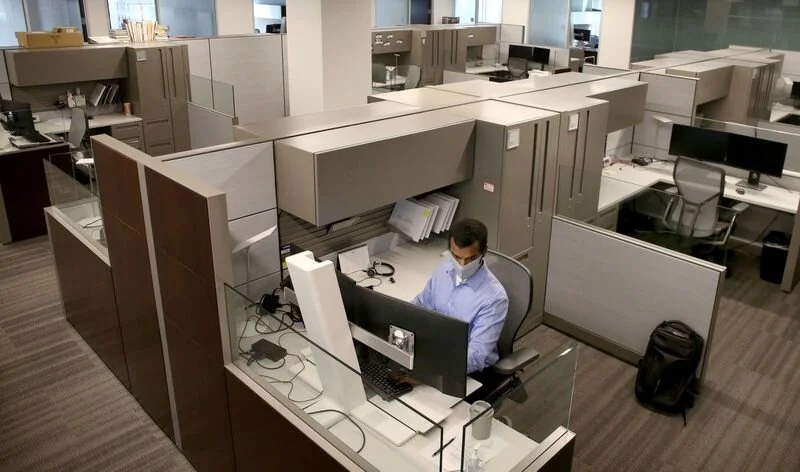Professional services firm Sikich will allow employees to work from home permanently and plans to shrink the size of its offices in one of the most dramatic responses to the coronavirus pandemic in Chicago.
CEO Chris Geier recently told the Chicago-based company’s more than 1,000 employees that remote work can continue “indefinitely,” as part of a reduction in real estate already envisioned before offices all but shut down in March because of COVID-19. Sikich has 307 Chicago-area employees.
In the near term, employees have been told to stay away from the office unless absolutely necessary, Geier said.
Over the next few years, Sikich plans to replace its current 14 offices throughout the country with about 30 “micro offices” that the firm’s consultants and other employees can use when they’re not working at client offices or from home, Geier said.
“This was a path we were already going down,” Geier said. “The pandemic is just accelerating it.”
Companies of all sizes are grappling with the short-term impacts of the pandemic while trying to form long-term workforce strategies. Because many leasing decisions are made months or even years before a move, the coronavirus has added a level of complexity, said Savills office tenant broker Joe Learner, who is not involved in Sikich’s plans.
“It’s important to make a good decision, and there are a lot of companies struggling to figure it out,” Learner said. “We’re in the middle of the storm and it’s difficult to make that decision now.”
Nationally, tech firms such as Twitter and Square have announced indefinite work-from-home policies. Others, including Google, Uber and Facebook, have told office workers they won’t need to return until at least the middle of next year.
Despite keeping employees away for now, Facebook earlier this month leased all 730,000 square feet in the James A. Farley Building in Midtown Manhattan. The massive New York lease signals that the social media giant eventually plans a large-scale return to the office.
Recreational Equipment Inc., the retailer known as REI, is taking a much different approach. REI this month said it wants to sell its headquarters under construction in Seattle, without ever moving in.
In Chicago, companies including Uber, Groupon and Chicago Tribune parent Tribune Publishing are looking to get rid of office space, while many others are expected to redesign spaces to increase distance between workers. Chicago landlords also are taking steps to improve indoor air quality during the pandemic.
It could take years to see the full effect of the pandemic on the way office towers function.
One of the biggest risks of pulling back from offices is losing the face-to-face interactions and collaborative work that open layouts were designed to foster.
Workplace studies show the majority of workers favor having some time to work from home in the future, Learner said. But many employees thrive on in-person interactions rather than virtual meetings, and office space plays a big role in establishing company culture, he said.
“There is a lot of institutional knowledge that passes from one generation to the next, and the office serves as a catalyst for that,” Learner said. “For most organizations, getting people together with some regularity is important. Without that hub, how do you do that?”
Sikich’s local presence includes a 25,000-square-foot headquarters in the Loop and a 120,000-square-foot office in Naperville. Instead of terminating leases or trying to sublease space to other tenants, Sikich will shift to smaller and more broadly dispersed offices as leases expire. Money saved on real estate will be invested in employees and maintaining the company’s culture, Geier said.
“I still want people to come together,” he said. “They just may not do it in 120,000 square feet in Naperville.”
Sikich is making the permanent commitment to remote work because employees have remained effective via online meetings, email and phone calls, Geier said. Flexibility is especially important for parents heading into a school year when many students will be learning outside the classroom, he said.
More than 90% of Sikich’s workers have been fully remote since March, compared with about one-third before the pandemic, Geier said.
“If you need a socialization fix, you shouldn’t get it in the office,” Geier said. “I get it, but right now we’re trying to be good corporate citizens and keep our employees and clients safe.”

